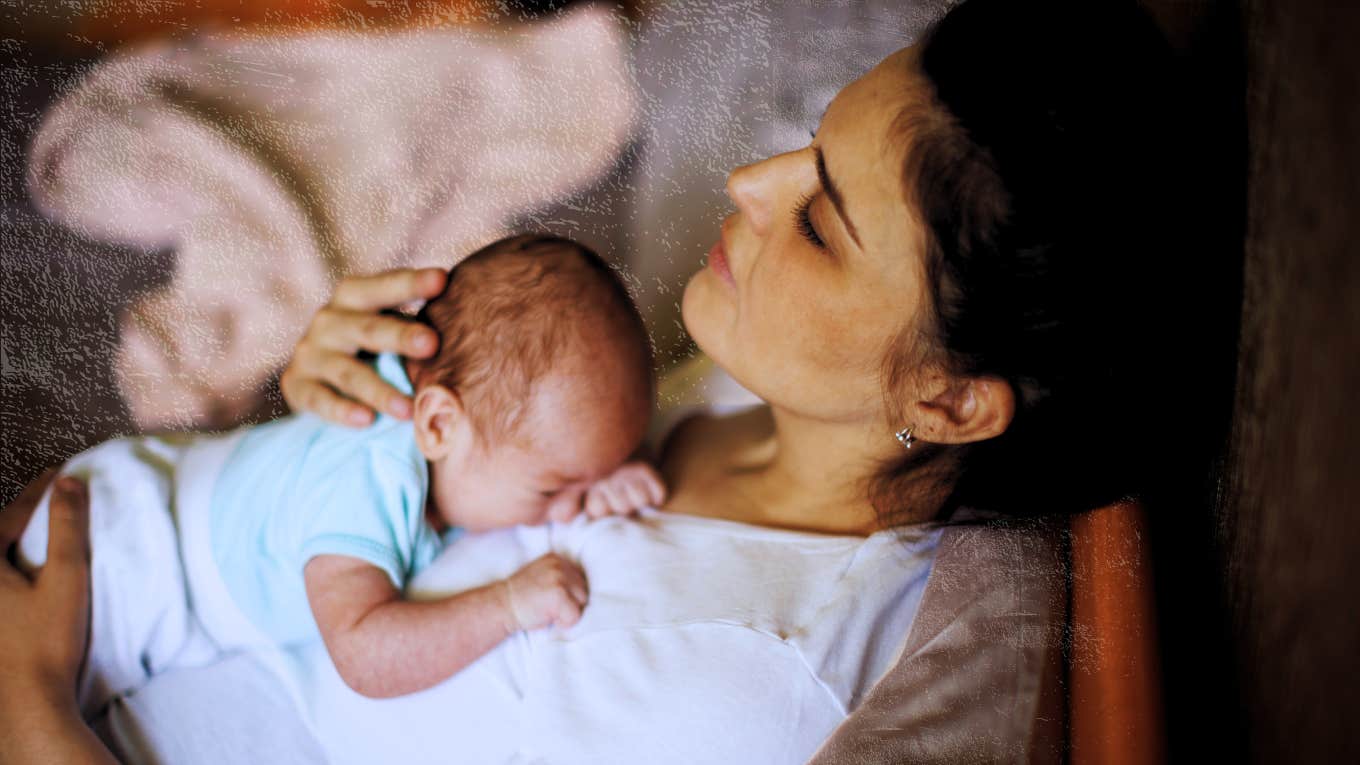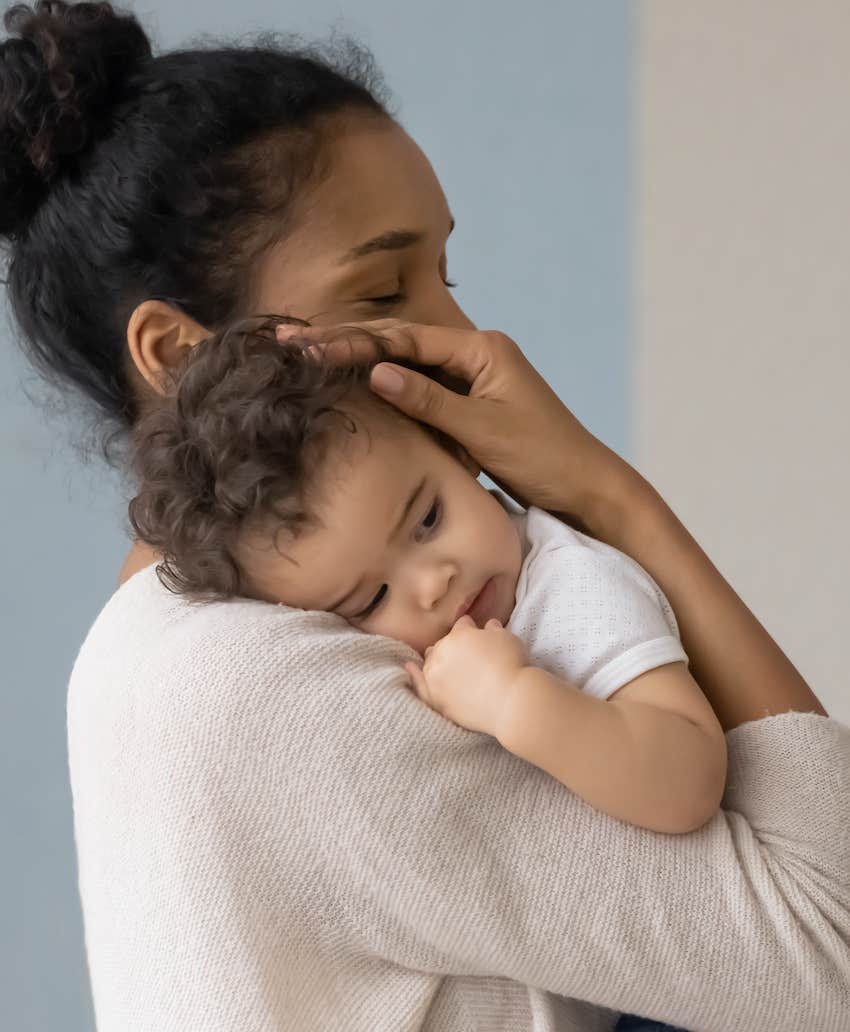5 Things To Do The Moment You Feel The 'Baby Blues' Set In
It's not your fault, but there are still things you can do to help get ahead of postpartum depression.
 damircudic | Canva
damircudic | Canva Feeling sad and out of sorts are common postpartum depression symptoms a lot of women have after having a baby. It is completely normal — you have made a gigantic change in your life!
You are physically recovering from a major event (they don’t call it labor for anything). You are likely overtired, overworked, and maybe a little unsure about how to care for this beautiful but mysterious wonder. Compound all that with the tell-tale signs of postpartum depression, and it's no wonder you don't feel like yourself!
Here are 5 steps to take as soon as you feel the 'baby blues' set in.
1. Forgive yourself.
Feeling sad when you just had a baby doesn’t make you a bad mother. I realize this is not what social norms would suggest, but it’s true. You are a good, caring, loving person who has a typical response to a tectonic shift in daily living. After all, it's called postpartum depression for a reason.
The most common reasons that women become depressed after childbirth are having little social support, a difficult baby, a troubled relationship with the baby’s father, and being depressed before the baby is born. None of these mean you are a bad person. Being able to forgive yourself for these feelings is the first step in helping yourself out of them.
2. Ask for what you need.
You may have prided yourself on your independence and self-sufficiency before the baby came, but now is not the time to go it alone. In the past, you would have had the automatic support of your community of family and friends to help with the baby, do your chores, or make meals.
Hillary was well-intentioned when she said, “It takes a village.” Call in the community — your partner, parents, siblings, and friends all want to be involved, but sometimes they don’t know what you need. Whether it is tangible help like doing laundry or emotional help like giving you a shoulder to cry on, don’t be shy about asking for what you need.
 fizkes via Shutterstock
fizkes via Shutterstock
3. Talk to other moms.
When feeling depressed about any situation, it always helps to talk to others who are swimming in the same soup. Find a new mothers group — either in person or online. You can look for Facebook or Yahoo groups of new mothers in your area.
Many social organizations and libraries also have free monthly support groups for new mothers. You will make friends, get advice, find empathy, and walk away with the knowledge you are not alone in your struggle. These kinds of interactions with others can lighten your mood.
4. Get some exercise.
I know you don’t have the time, but exercise is one of the most reliable ways to lift depressive symptoms. It doesn’t have to be a master pilates class or a 90-minute booty boot camp. 20-30 minutes of brisk walking 4-5 times per week.
If you don’t have someone to give you that time to yourself, you can do it with the baby in the stroller. That way, you get an extra boost because studies show that looking at the blue sky and the green of trees also improves mood and reduces anxiety and stress.
It can be hard to get moving when you feel depressed but try to push yourself here. In just a few days, you will feel the difference.
5. If all else fails, see a mental health professional.
If your depression becomes something you can’t make your way out of and is threatening your ability to function, it’s time to bring in the professionals. Fortunately, there are very effective treatments for postpartum depression. Studies show that talk therapy and anti-depressant medication are equally effective.
For talk therapy, you can work with a psychologist or a licensed social worker, usually once a week for about eight weeks. If you prefer the medication route, I suggest working with a psychiatrist since they are specifically trained in how to find the best anti-depressant medication for you (there are many). Your obstetrician and general practitioner are not.
I suffered from postpartum depression when I had my first child. It’s not fun and unfair. The guilt alone can be crushing. Let it go, and reach out for what you need. You deserve it. It may take a while, but you will pull out of this and get back to your awesome and happy self.
Robyn Stein DeLuca, Ph.D. is a psychologist and postpartum expert. She teaches the Two Day Bringing Baby Home Workshop for Couples, which helps couples improve and protect their relationship when the new baby comes home.
